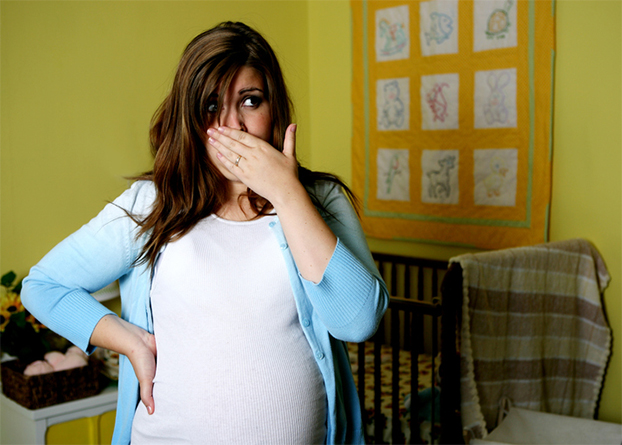 You have a lot to think about when you’re pregnant, especially when it comes to health and nutrition. You not only have to worry about your own health, you also have to make the best choices for the baby growing inside you.
You have a lot to think about when you’re pregnant, especially when it comes to health and nutrition. You not only have to worry about your own health, you also have to make the best choices for the baby growing inside you.
One of those things you should be thinking about is your dental health – specifically, the health of your gums. During pregnancy, your body goes through incredible changes, and it’s easy to overlook the subtle changes happening in your mouth. But if you notice that your gums have become red, sore, or have started to bleed, you may have pregnancy gingivitis. And you’ll need to take action, for the sake of your baby.
What Is Pregnancy Gingivitis?
Pregnancy gingivitis is a common, mild form of gum disease that is common during pregnancy. Forty percent of women will develop gingivitis sometime during their pregnancy as a result of fluctuating hormones. The increased level of progesterone in pregnancy make it easier for certain gingivitis-causing bacteria to grow. The bacteria irritate the gum tissue, making them tender, bright red, swollen, sensitive, and easy to bleed.
Gingivitis itself can be a health issue, but what makes pregnancy gingivitis a special concern is that it can have devastating effects on an unborn baby. As the bacteria from the infected gums enter the bloodstream, it causes the mother’s immune system to work overtime and produce prostaglandins, a natural fatty acid that controls inflammation. When a woman is pregnant and her level of prostaglandins increases, she goes into labor. It is possible that if extra prostaglandins are produced when the body is reacting to infected gums, a woman’s body may think it is a signal to go into labor sooner than expected, causing the baby to be born prematurely.
Studies have shown that there is a link between gum disease and premature birth. Researchers of one study who published their results in The Journal of the American Dental Association found that pregnant women with chronic gum disease were 4 to 7 times more likely to deliver premature and underweight babies than mothers with healthy gums. Mothers with the most severe periodontal disease delivered the most prematurely, at 32 weeks.
How Can Pregnancy Gingivitis Be Prevented?
Good dental hygiene habits are the key to preventing pregnancy gingivitis.
- Brush twice a day, every day. Make sure you are using a soft-bristled toothbrush, especially if your gums a red or swollen.
- Floss at least once per day.
- Add an antimicrobial mouth rinse to your brushing and flossing routine.
- Don’t skip professional dental cleanings. Now more than ever, those check-ups and cleanings are important!
- If your gingivitis does not improve, talk to your dental professional, who may prescribe antibiotics or other treatments.
Take Care of Your Dental Health
Whatever your dental needs, we’re here to help. If you have questions, or would like to speak with one of our periodontists in SE Michigan about your dental options, contact us at either of our locations:
Grosse Pointe Farms: (313) 881-2480
Shelby Township: (586) 803-8300
Don’t miss a thing! Connect with us on Facebook.
